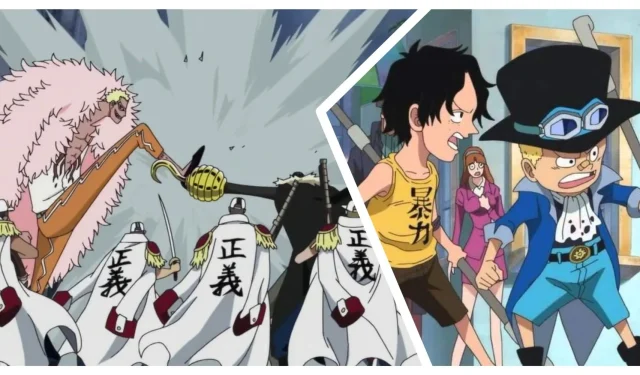
As the One Piece saga unfolds, viewers are increasingly aware of the numerous character parallels within its diverse cast. Some of these comparisons can be linked to typical storytelling elements in shonen series, yet deeper connections emerge when examining specific characters side by side.
Even in these instances, creators have made a conscious effort to differentiate these characters, endowing them with unique goals, temperaments, and quirks. Still, many share enough similarities that they occupy similar archetypal roles, even if their placements in the timeline of the story vary.
5 Crocodile and Donquixote Doflamingo
The Ambitious Warlords
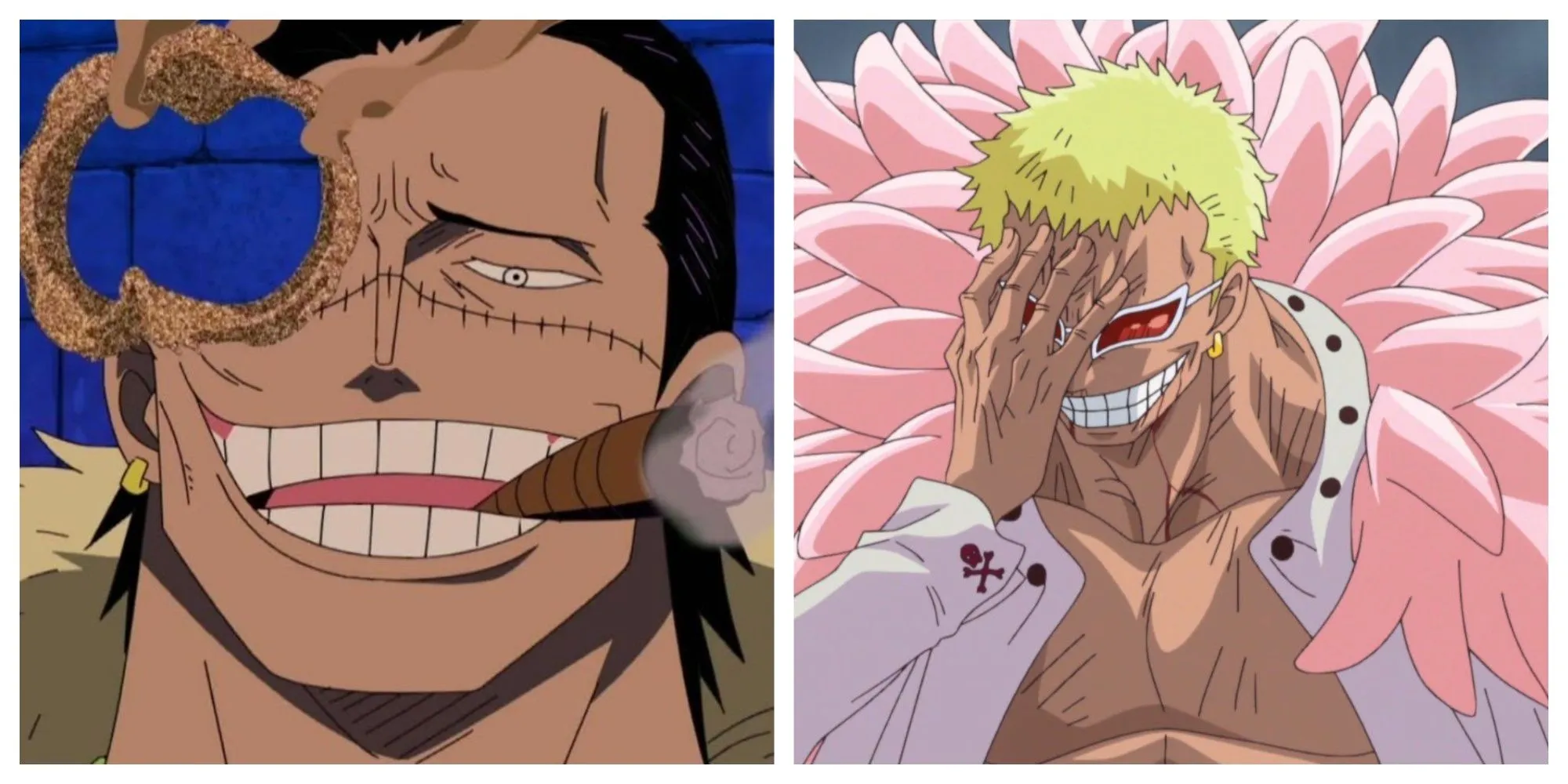
Among the most strikingly similar characters, both Crocodile and Doflamingo served as formidable antagonists, representing dire threats to Luffy throughout the pre- and post-timeskip arcs. Their extensive criminal activities were indirectly endorsed by the government, thanks to their status as Warlords, ultimately leading to their momentary imprisonments.
Despite their shared trajectories, each villain exhibits distinct differences. Crocodile’s background remains somewhat enigmatic, revealed only through fleeting references. Once a pirate who faced defeat at the hands of Whitebeard, he appeared to have some connection to Ivankov. Known for his ambitions to secretly conquer Alabasta using Baroque Works, he concealed his true motives from his minions.
Conversely, Doflamingo’s history and motivations are thoroughly explored. As a dethroned World Noble, he harbored a strong desire to reclaim his former status. Uncovering his Conqueror’s Haki earned him the admiration of those around him, enabling him to forge criminal ties that enriched his endeavors. Unlike Crocodile, Doflamingo formed close relationships with his crewmates, viewing the officers of the Donquixote Pirates as family. He also wielded potent knowledge gained during his time as a World Noble, which facilitated his corrupt practices. While he successfully took control of Dressrosa, that reign was short-lived, culminating in the loss of his stolen kingdom to the Straw Hat Pirates and their allies in the Colosseum.
Notably, Crocodile places great importance on leadership, exemplified by his decision to allow Buggy to serve as a mere figurehead within the Cross Guild, aligning with his penchant for manipulation. Doflamingo, however, showed no aversion to working beneath stronger figures like Kaido, as long as he received protection in return. Though he once invited Crocodile to join him, the latter declined. Fans speculate that their similar ambitions may eventually lead to a collaboration within Cross Guild.
4 Portgas D. Ace and Sabo
Luffy’s Vowed Older Brothers
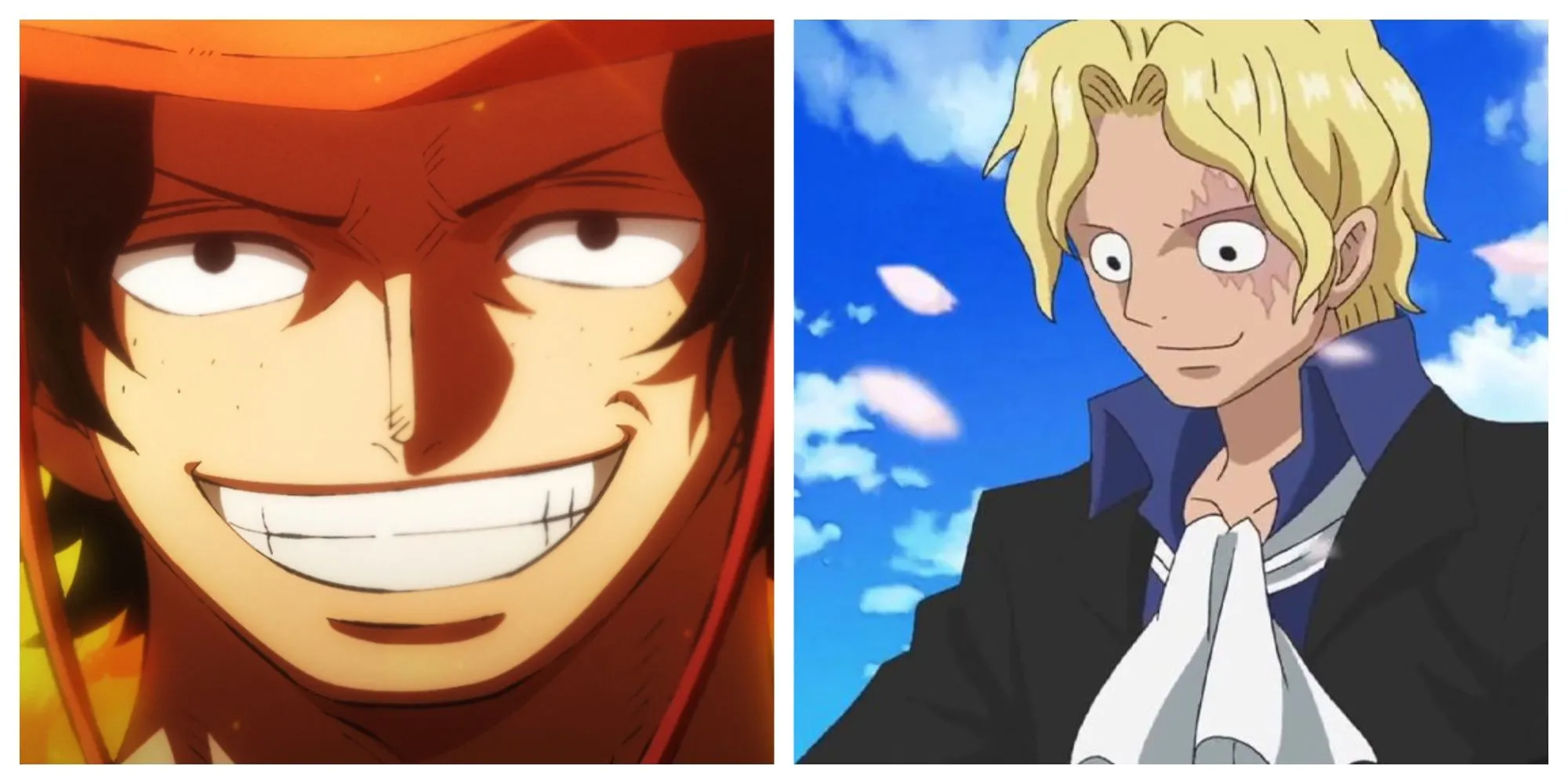
Portgas D. Ace and Sabo both shared a childhood alongside Luffy, taking on comparable roles within the One Piece universe.
As Luffy’s older siblings, they provided a connection between the young pirate and prominent heroic organizations. Ace held the position of Division Commander within the Whitebeard Pirates, allying with Luffy during the pivotal Marineford incident. In contrast, Sabo served as the second in command of the Revolutionary Army, fighting side by side with Luffy at Dressrosa. Amplifying their bond, Sabo inherited the Mera Mera no Mi fruit from his late brother. Beyond their shared sense of commitment to Luffy, both harbor a mutual disdain for their fathers, albeit for different reasons.
Ace resented his father, Gol D. Roger, for the legacy of infamy that came with being the son of the Pirate King, leading him to feel as if he was cursed from birth. Meanwhile, Sabo, born into nobility, felt stifled by his family’s fixation on status, choosing to embrace a life of hardship over the comforts of his upbringing. Ultimately, both brothers discovered purpose within the organizations associated with Luffy—Ace as a pirate and Sabo as a revolutionary.
3. Kuzan and Issho
The “Noble”Admirals
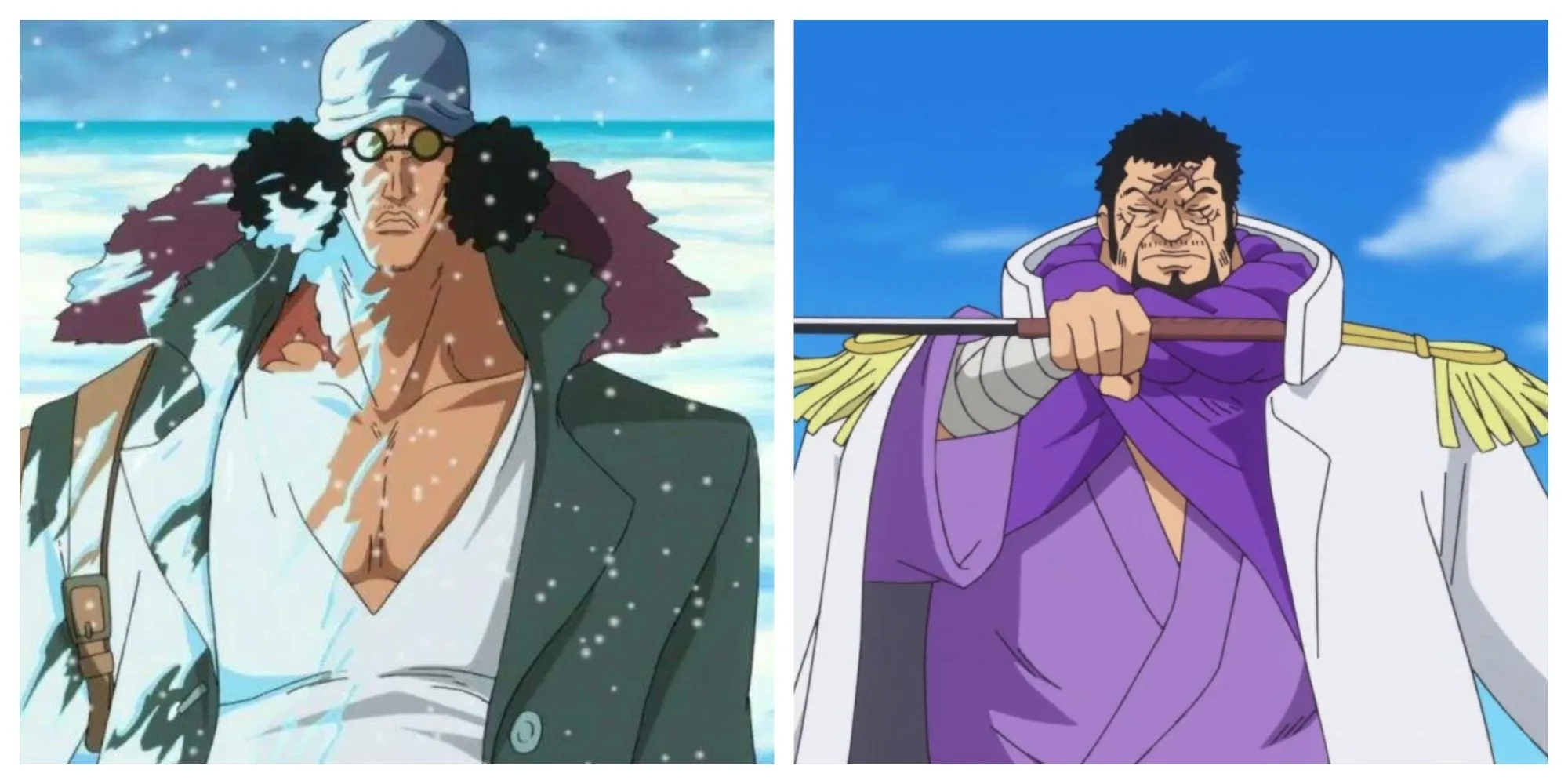
The Marines embody an antagonistic force, often displaying authoritarian tendencies that undermine the very citizens they pledge to protect. Nevertheless, certain members aspire to create genuine change, occasionally operating in opposition to the prevailing standards of their organization. Post-timeskip, one such admiral emerges with a morally superior approach.
Kuzan, formerly known as Aokiji, harbors deep cynicism regarding the concept of “justice”after witnessing the tragedy at Ohara. This experience shaped his belief in “Lazy Justice,”suggesting that many pursuits are unworthy of effort. Consequently, he allowed Nico Robin, the only survivor of the Ohara Incident, to escape, acting on behalf of his friend, Jaguar D. Saul, whom he mistakenly thought he had killed. His growing disenchantment resulted in his association with Monkey D. Garp, a Vice Admiral who consistently turned down promotions out of disdain for the World Nobles. Kuzan ultimately resigned his post when his fellow admiral, Akainu, ascended to Fleet Admiral and later allied himself with the Blackbeard Pirates under unclear circumstances.
In that void, Issho, also known as Fujitora, emerged as his successor. Blinding himself in response to the injustices he witnessed, Issho enacted his interpretation of justice that balances criminal apprehension with the protection of the innocent. He openly defied government orders to pursue his personal convictions, notably expressing regret to King Riku of Dressrosa for the government’s role in facilitating Doflamingo’s tyranny, despite being instructed not to. He also demonstrated his commitment to justice by aiding the Revolutionary Army, permitting enslaved individuals to flee and even confronting fellow admiral Aramaki to accomplish this goal.
2 Arlong and Hody Jones
Leaders of Fish-Man Supremacy
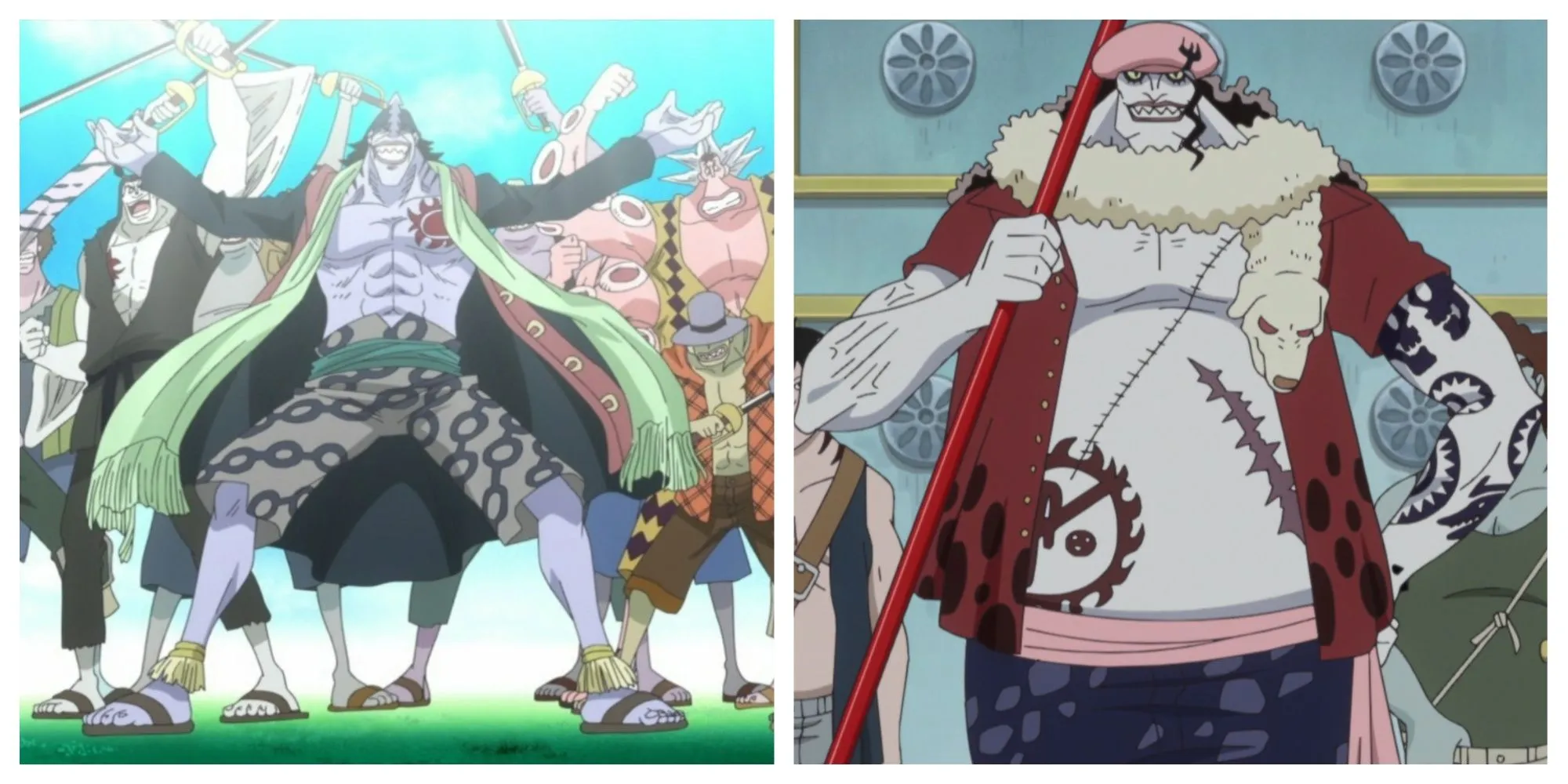
Arlong served as an influential figure for Hody Jones, shaping the younger fish-man’s anti-human ideology. Both captains sought to advance their supremacist agendas, albeit influenced by their differing interactions with humans.
Arlong’s capture and imprisonment by humans prior to his subsequent release by Jimbei provided him with a shrewd awareness of human power dynamics. While he regarded himself as superior, he was pragmatic enough to engage in dealings with humans, such as Nezumi, or exploit their talents, as he did with Nami, whom he enslaved. Ultimately, despite his aspirations for fish-man domination, his reign was curtailed by the Straw Hats, leading to his downfall.
Conversely, Hody seemed less acquainted with humans, lacking personal experiences of their racism or control over other races. This ignorance inflated his ego and confidence in his crew, a mindset directly influenced by Arlong’s example. Operating primarily underwater, Hody found little incentive to ally with humans directly, although he did partner with Vander Decken, who forcibly incorporated humans into his crew. In a notable departure from Arlong’s approach, Hody was more inclined to turn against fellow fish-men, displaying an egotistical disregard for human respect, which ultimately led to his defeat by Jimbei and the Straw Hats.
1 Buggy and Demalo Black
The Pretenders of Toughness
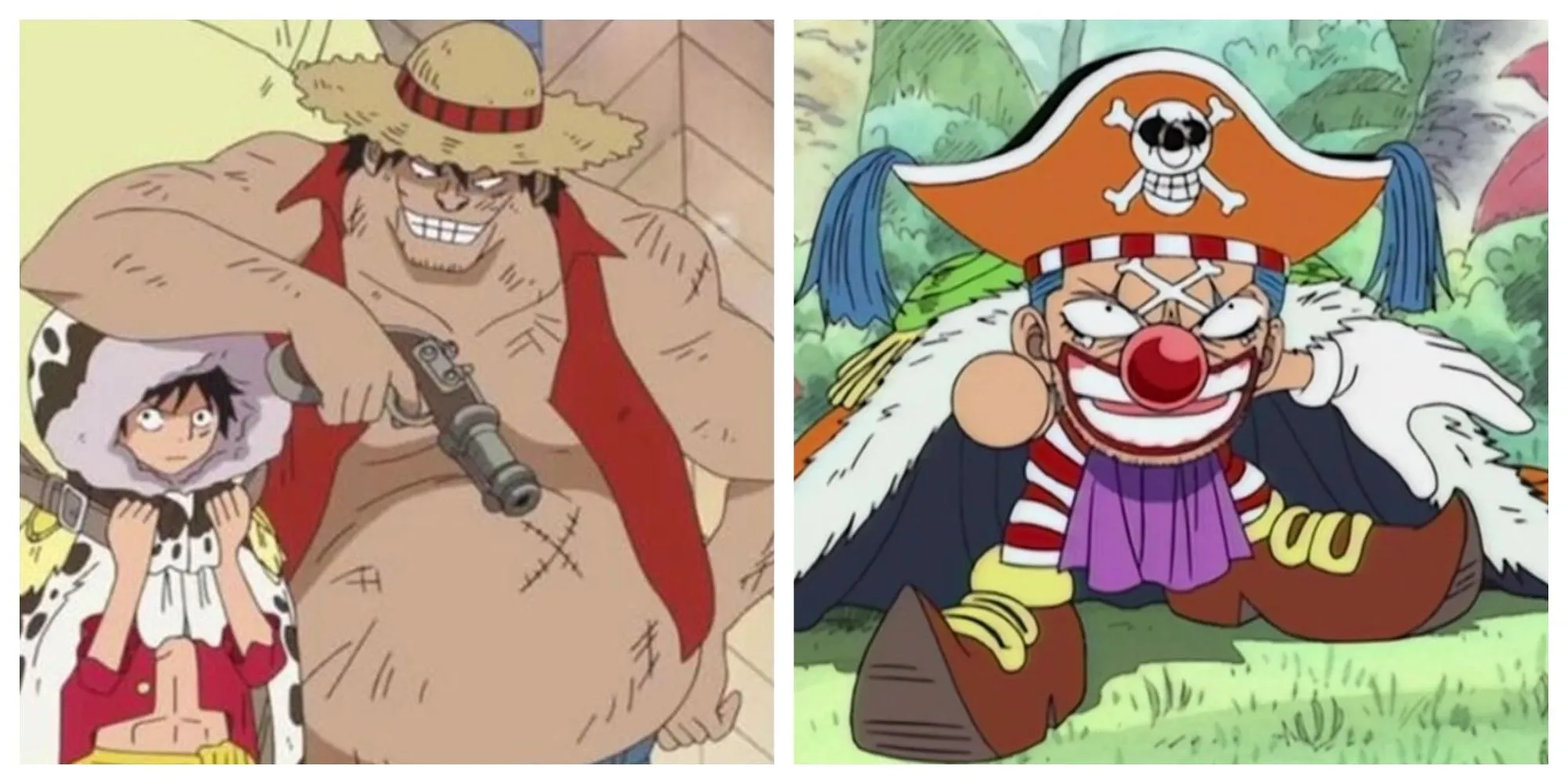
Demalo Black, a petty scam artist, attempted to claim the identity of the presumed-dead Monkey D. Luffy to construct a pirate alliance, riding on the coattails of the Straw Hat Pirates’ reputation. His efforts crumbled when the genuine crew resurfaced, fortified by extensive training. The so-called Fake Straw Hat Crew disbanded almost as quickly as it formed, revealing a fragile foundation. After some members, including Black, were imprisoned, they resorted to imitating the seemingly-deceased Kid Pirates. However, their lack of substance was swiftly outshined by more substantial captains.
Buggy, a former member of the Roger Pirates alongside the noteworthy Shanks, ventured off to establish his crew on the East Blue after the dissolution of the Roger Pirates. Following a defeat at the hands of the Straw Hats, who had only three members, he aligned himself with Alvida and inadequately attempted to capture Luffy at Lougetown. His misadventures led to a stint in Impel Down, where he accidentally crossed into marine territory despite being a wanted individual. His breakout alongside Luffy garnered the respect of hardened criminals within the prison, who flocked to join his crew. Leveraging his newfound notoriety, Buggy ascended to Warlord status and formed a mercenary faction funded by Crocodile, legitimized by his Warlord title.
After the Warlord system collapsed, Crocodile sought to collect his debts, looking to secure funds for the establishment of Cross Guild, a mercenary group targeting marines. Buggy’s proposal to settle through publicity misleadingly cast him as the group’s leader. Given his status as an Emperor, many powerful pirates are expected to gravitate toward Buggy, although fans contend that this facade will eventually collapse when his true lack of strength is inevitably exposed.




Leave a Reply